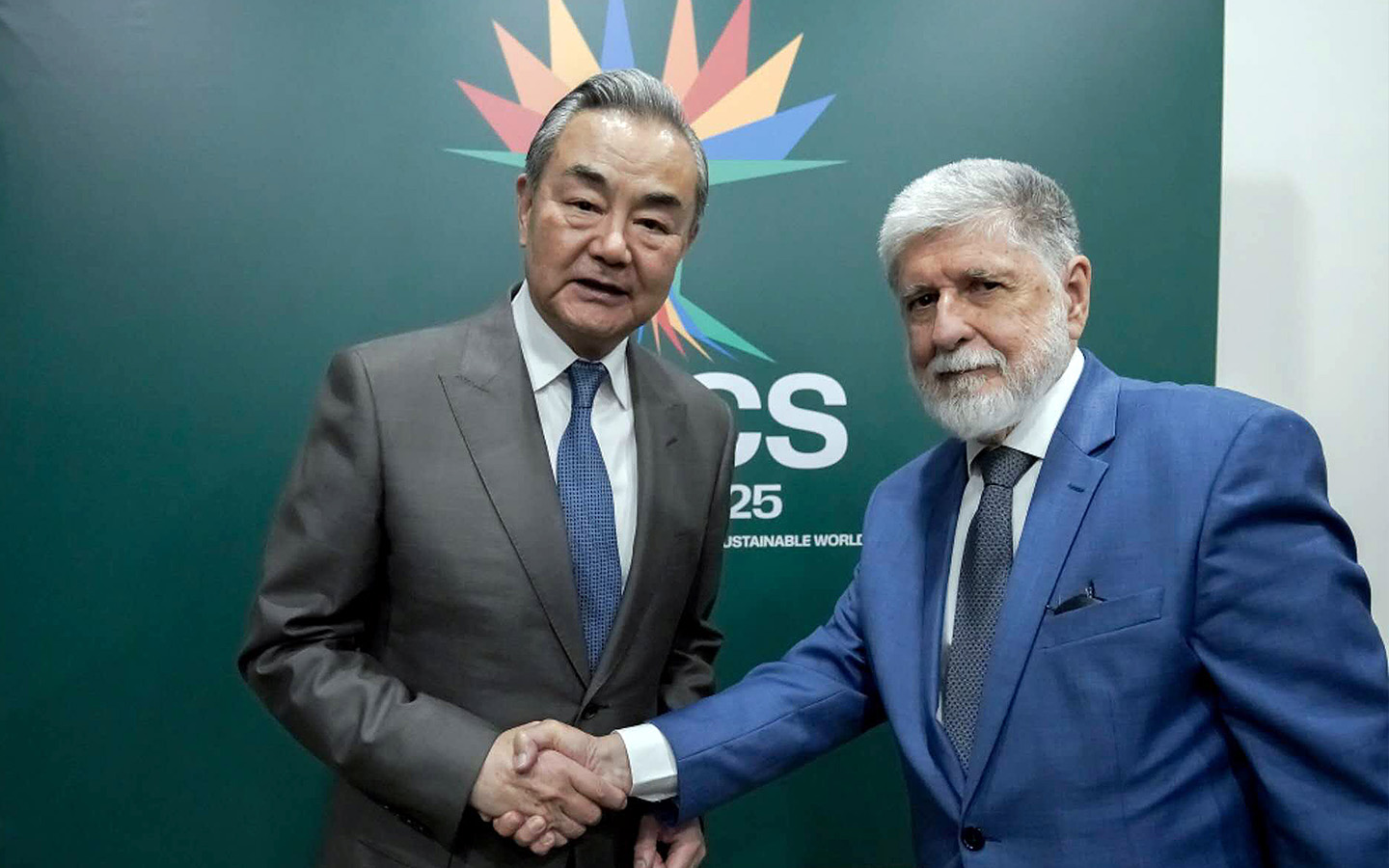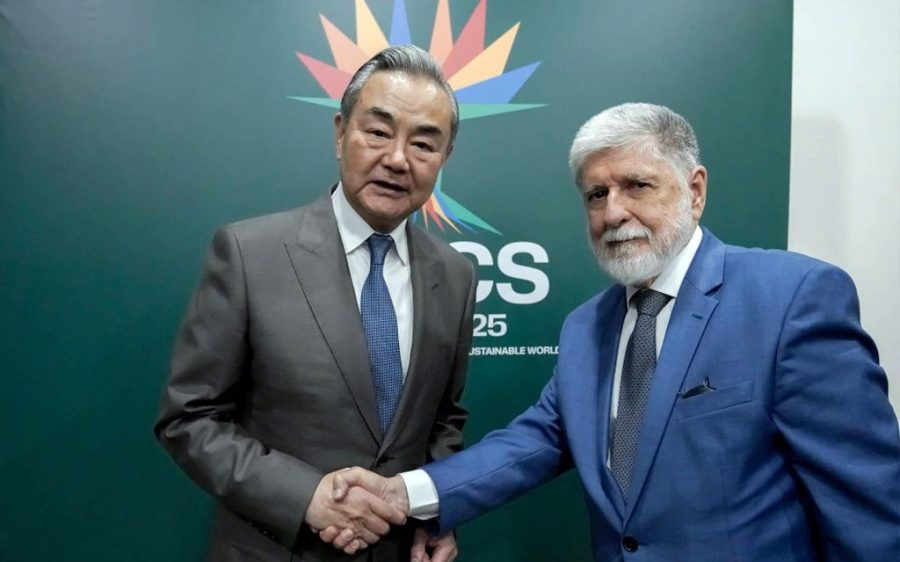As the US slaps steep tariffs on most Brazilian goods, China’s top diplomat affirmed support for Brazil and derided the “bullying practices of arbitrary tariffs,” according to a summary released by the Chinese Ministry of Foreign Affairs.
Foreign Minister Wang Yi spoke with Celso Amorim, chief advisor to the Brazilian presidency, on Wednesday at the latter’s request. The Chinese diplomat said that using tariffs as weapons to suppress other countries runs counter to the purposes of the UN Charter and undermines World Trade Organization (WTO) rules.
“Such practices will win no support and cannot be sustained,” the summary states. Wang said China opposes “groundless interference” in Brazil’s internal affairs, a nod to US President Donald Trump’s legal rationale for the steep levy, which contends that the actions of Brazilian authorities in investigating and prosecuting an alleged violent coup plot “threaten the national security, foreign policy and economy of the United States.”
The tariffs, Amorim noted, have caused disruption in Brazil’s trade, economic and internal affairs. He thanked China for its steadfast support and echoed the Asian giant’s willingness to cooperate on strengthening the BRICS bloc of nations, enhancing solidarity and self-reliance among the Global South, and upholding international fairness and justice.
[See more: China courts Brazilian coffee producers amid tariff woes]
Their Wednesday call came as the US tariffs went into effect, hiking levies on Brazilian goods as high as 50 percent. The Brazilian government estimates that 35.9 percent of goods shipped to the US have been affected, amounting to about 4 percent of all Brazilian exports. Many sectors in Brazil are already feeling the effect, as companies began pausing investment, reducing production and laying off workers when Trump first announced the tariffs in early July.
Natural stone, coffee and fruit are the worst off, but market shocks and uncertainties triggered by the initial announcement hit exempted sectors like steel, iron, aircraft and wood as well. There are also fears of future reversals.
“Trump changes his mind all the time. It creates instability for the economy and the world,” Reinaldim Barboza, president of construction and furniture industry worker association Fetraconpar, told online newspaper Brasil de Fato. “Workers pay the price.”
Brazilian authorities are negotiating with the US to reverse the tariffs, and reaching out to the WTO. They requested consultations on the grounds the US “has flagrantly violated key commitments” to the WTO, including tariff ceilings and the principle of the most favoured nation (MFN), which guarantees nominally equal treatment in trade. Domestic relief measures are also being studied to mitigate the damage, with announcements expected soon.






